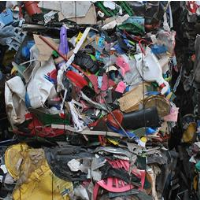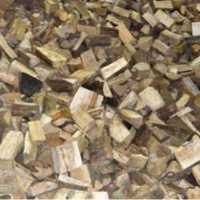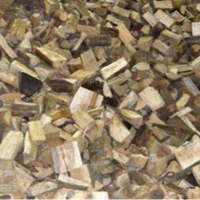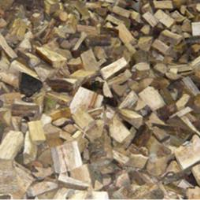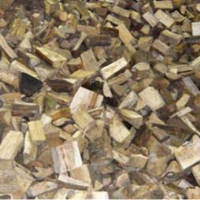Plastic Recycling Aberbargoed
Here are Greens Recycling we offer a comprehensive plastic recycling facility. Our aim is to recycle all types of plastic derived from materials that would otherwise be destined for landfill. Plastic is divided into 7 different groups and at Greens Recycling we will accept most types of plastic in large or small quantities, from bottles to PVC window frames. The price we will pay for different types of plastic is determined by the current market price at the time of sale.
Pre-sorted and non contaminated plastics achieve a higher price.
TYPES OF PLASTIC
Plastic #1: Polyethylene terephtalate, also known as PETE or PET. Usually clear in color, the vast majority of disposable soda and water bottles are made of #1 plastic. This plastic is considered generally safe. However, the porous nature of its surface allows bacteria and flavor to accumulate, so avoid reusing these bottles as makeshift containers.
Plastic #2: High-density polyethylene, or HDPE. Most milk jugs, detergent bottles, juice bottles, butter tubs, and toiletries bottles are made of HDPE. Usually opaque in color. This plastic is considered safe and has low risk of leaching.
Plastic #3: Polyvinyl chloride, or PVC. It is used to make food wrap, bottles for cooking oil, and the highly common plumbing pipes. PVC, although tough in terms of strength, it is not considered safe to cook food near it. PVC contains softening chemicals called phthalates that interfere with hormonal development. Never cook using food wrap, especially in a microwave oven. This plastic is rarely accepted by recycling programs.
Plastic #4: Low-density polyethylene (LDPE) is used to make grocery bags, some food wraps, squeezable bottles, and bread bags. While considered safe it is unfortunately not often accepted by curbside recycling programs.
Plastic #5: This is polypropylene. Common items produced with it include yogurt cups, medicine bottles, ketchup, syrup bottles, straws and similar wide-necked containers, as well as water bottles with a cloudy finish. This plastic is also considered safe.
Plastic #6: Polystyrene, or Styrofoam, from which disposable containers and packaging are made. Also found in disposable plates and cups. Overwhelming evidence suggests that this type of plastic leaches potentially toxic chemicals, especially when heated. It is difficult to recycle and most recycling programs won�t accept it.
Plastic #7: This category basically means �everything else� and is composed of plastics that were invented after 1987 � the use of plastic in this category is at your own risk since you don�t know what could be in it. Polycarbonate falls into this category, including the highly toxic BPA. Products produced include baby and water bottles, sports equipment, medical and dental devices, CD�s, DVD�s, and even iPods. that is known to contain BPA. It is difficult to recycle #7 plastic and most curbside recycling programs won�t accept it.
SOME PLASTICS WE WILL PAY FOR
- WHILST FOR OTHERS THERE MAY BE A DISPOSABLE CHARGE.
Greens recycling will not accept Plastic #7.
Roll On/Roll Off Skips can be supplied for your plastic/PVC recycling needs.
Please telephone for further information.
TYPES OF PLASTIC
Plastic #1: Polyethylene terephtalate, also known as PETE or PET. Usually clear in color, the vast majority of disposable soda and water bottles are made of #1 plastic. This plastic is considered generally safe. However, the porous nature of its surface allows bacteria and flavor to accumulate, so avoid reusing these bottles as makeshift containers.
Plastic #2: High-density polyethylene, or HDPE. Most milk jugs, detergent bottles, juice bottles, butter tubs, and toiletries bottles are made of HDPE. Usually opaque in color. This plastic is considered safe and has low risk of leaching.
Plastic #3: Polyvinyl chloride, or PVC. It is used to make food wrap, bottles for cooking oil, and the highly common plumbing pipes. PVC, although tough in terms of strength, it is not considered safe to cook food near it. PVC contains softening chemicals called phthalates that interfere with hormonal development. Never cook using food wrap, especially in a microwave oven. This plastic is rarely accepted by recycling programs.
Plastic #4: Low-density polyethylene (LDPE) is used to make grocery bags, some food wraps, squeezable bottles, and bread bags. While considered safe it is unfortunately not often accepted by curbside recycling programs.
Plastic #5: This is polypropylene. Common items produced with it include yogurt cups, medicine bottles, ketchup, syrup bottles, straws and similar wide-necked containers, as well as water bottles with a cloudy finish. This plastic is also considered safe.
Plastic #6: Polystyrene, or Styrofoam, from which disposable containers and packaging are made. Also found in disposable plates and cups. Overwhelming evidence suggests that this type of plastic leaches potentially toxic chemicals, especially when heated. It is difficult to recycle and most recycling programs won�t accept it.
Plastic #7: This category basically means �everything else� and is composed of plastics that were invented after 1987 � the use of plastic in this category is at your own risk since you don�t know what could be in it. Polycarbonate falls into this category, including the highly toxic BPA. Products produced include baby and water bottles, sports equipment, medical and dental devices, CD�s, DVD�s, and even iPods. that is known to contain BPA. It is difficult to recycle #7 plastic and most curbside recycling programs won�t accept it.
SOME PLASTICS WE WILL PAY FOR
- WHILST FOR OTHERS THERE MAY BE A DISPOSABLE CHARGE.
Greens recycling will not accept Plastic #7.
Roll On/Roll Off Skips can be supplied for your plastic/PVC recycling needs.
Please telephone for further information.
Visit the Greens Recycling website for more information on Plastic Recycling Aberbargoed

